Tool
7 Popular Interfaith Student Events
To help you plan for your campus, we’ve gathered seven popular events for student interfaith leaders.
Hosting an event is one of the best ways to engage your campus in interfaith cooperation. Student events offer the chance to learn information, perform service, share stories, raise awareness, and travel to new sites. Ultimately, by bringing together diverse students across religious and non-religious worldviews, you demonstrate to your campus community that interfaith work is valuable and inclusive. To help you plan for your campus, we’ve gathered seven popular events for student interfaith leaders:
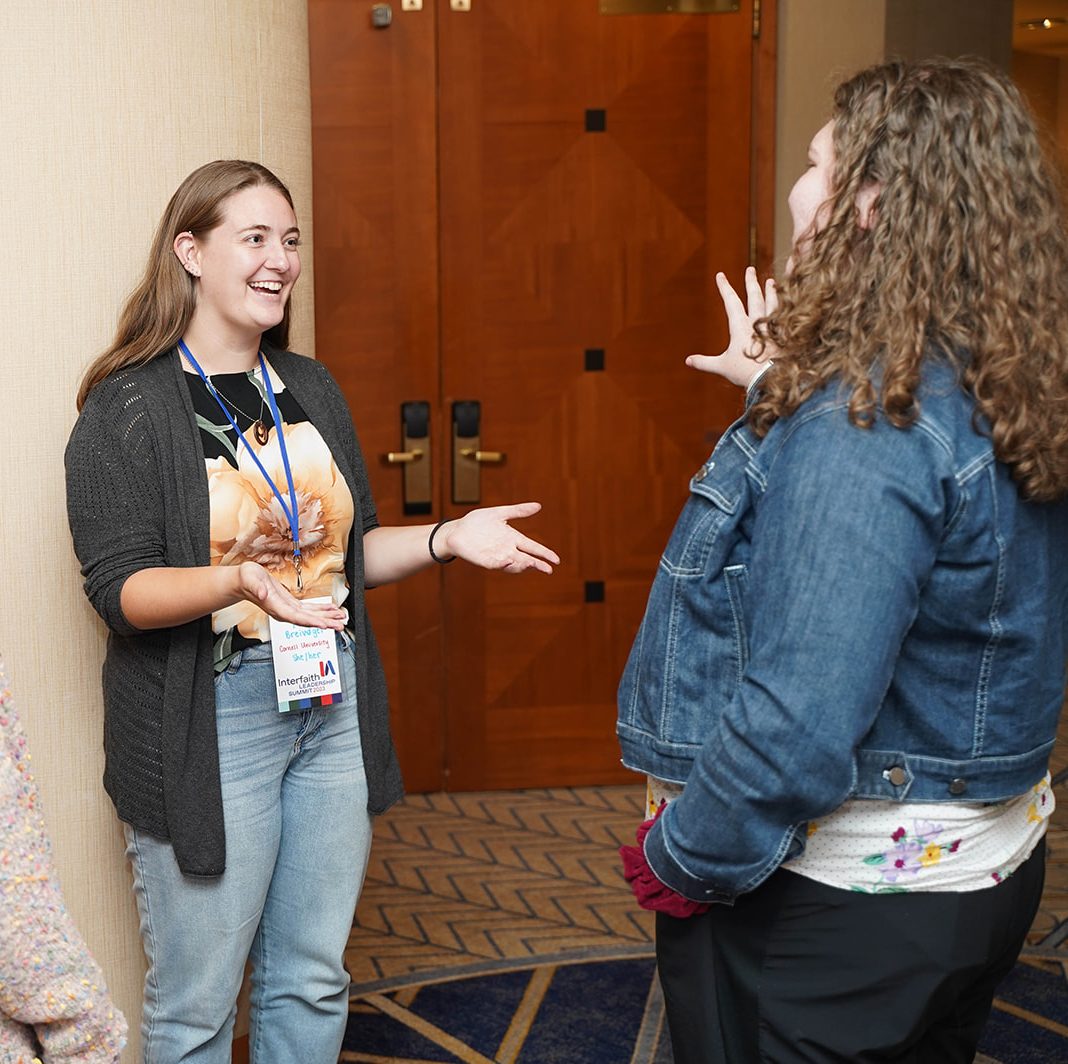
Talk Better Together
Number of Participants: 10-500
Event Duration: 20-40 minutes
Talk Better Together is an easy way to spark interfaith dialogue and reflection. The concept is simple: divide up whoever is in the room into two groups. Have everyone partner up with someone from the other group. Then ask them questions about why they’re motivated to make the world a better place. Then, shuffle partners! Depending on how many participants you have and how many questions you give, it’s great as a standalone event or as part of a larger series of activities. For more details, check out our Talk Better Together toolkit.
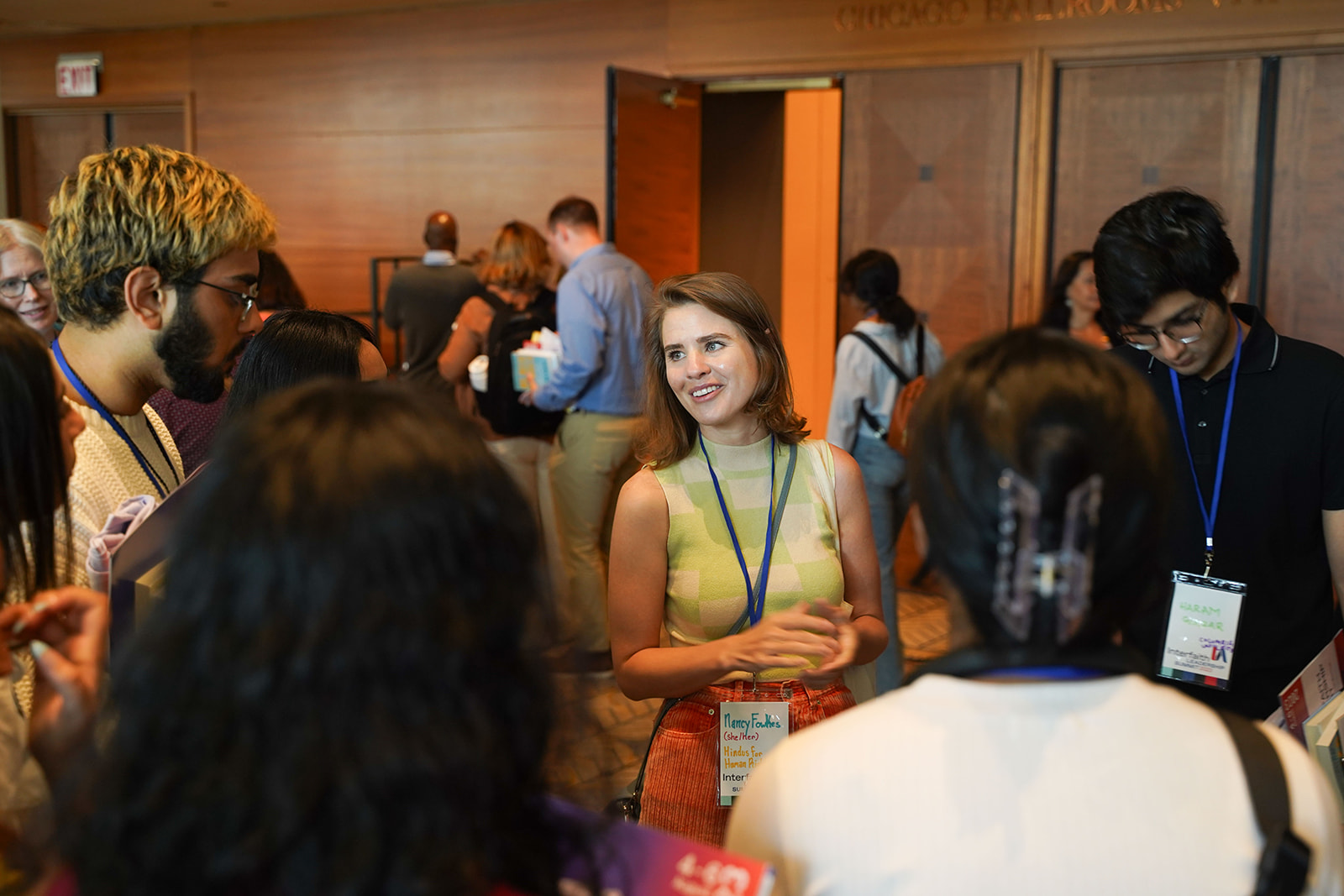
Speedfaithing
Number of Participants: 1-4 speakers
Event Duration: 20 minutes per speaker
This is a short and sweet way to present your religious or philosophical values in a safe space. A typical speedfaithing session lasts around 20 minutes – 10 minutes for the presenter to share about their worldview and 10 minutes for audience Q&A. Events can have one presenter or many – whatever fits your vision and works within your timeline. For tips and tricks on planning a speedfaithing event, reference our Speedfaithing resource.
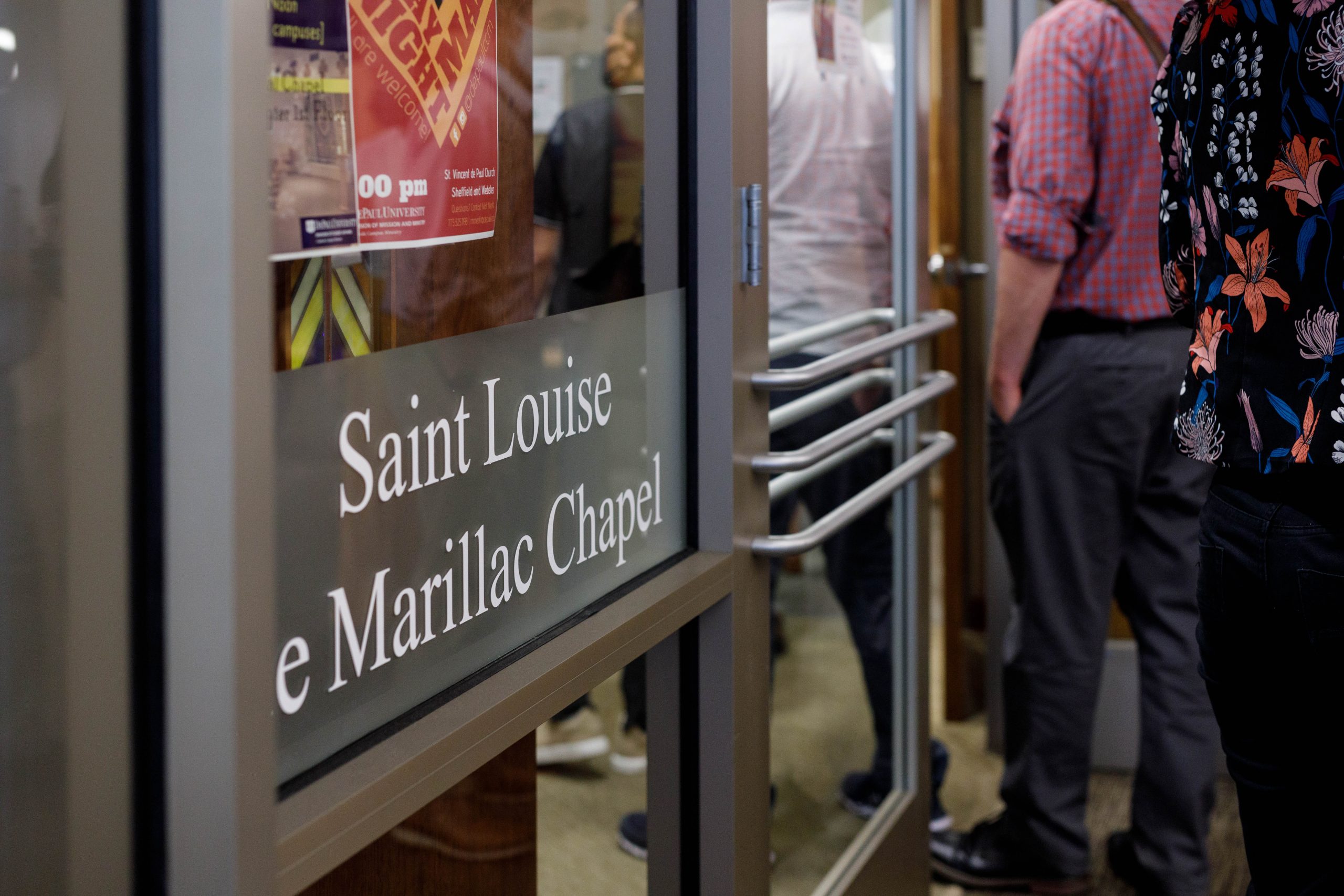
Site Visits
Number of Participants: 5-20
Event Duration: 2 hours
Visiting a religious or non-religious community gives you the unique opportunity to interact with people in their sacred space. The best site visits have a host from within the community to give a tour and provide information about both the space and their tradition. These can be sites like churches, mosques, or temples, but also places like non-profit community centers supported by religious organizations. Make sure to ask in advance if there are any special considerations like taking off shoes, maintaining silence, etc. Find more information in our how-to guide for visiting a religious site.

Fast-a-thon
Number of Participants: Unlimited
Event Duration: 24 hours
Created by the national Muslim Student Association, Fast-a-thons are events where participants pledge to not eat for a day and then donate the money they would have spent on food to a specific cause. At the end of the day of fasting, everyone comes together to break the fast and reflect on their experiences. There is no cap on the number of people who can be involved, you can donate the money to whatever cause you’re working on, and it opens up space to learn more about the importance of fasting in different religious traditions. Here’s a toolkit to help you plan an effective fast-a-thon.
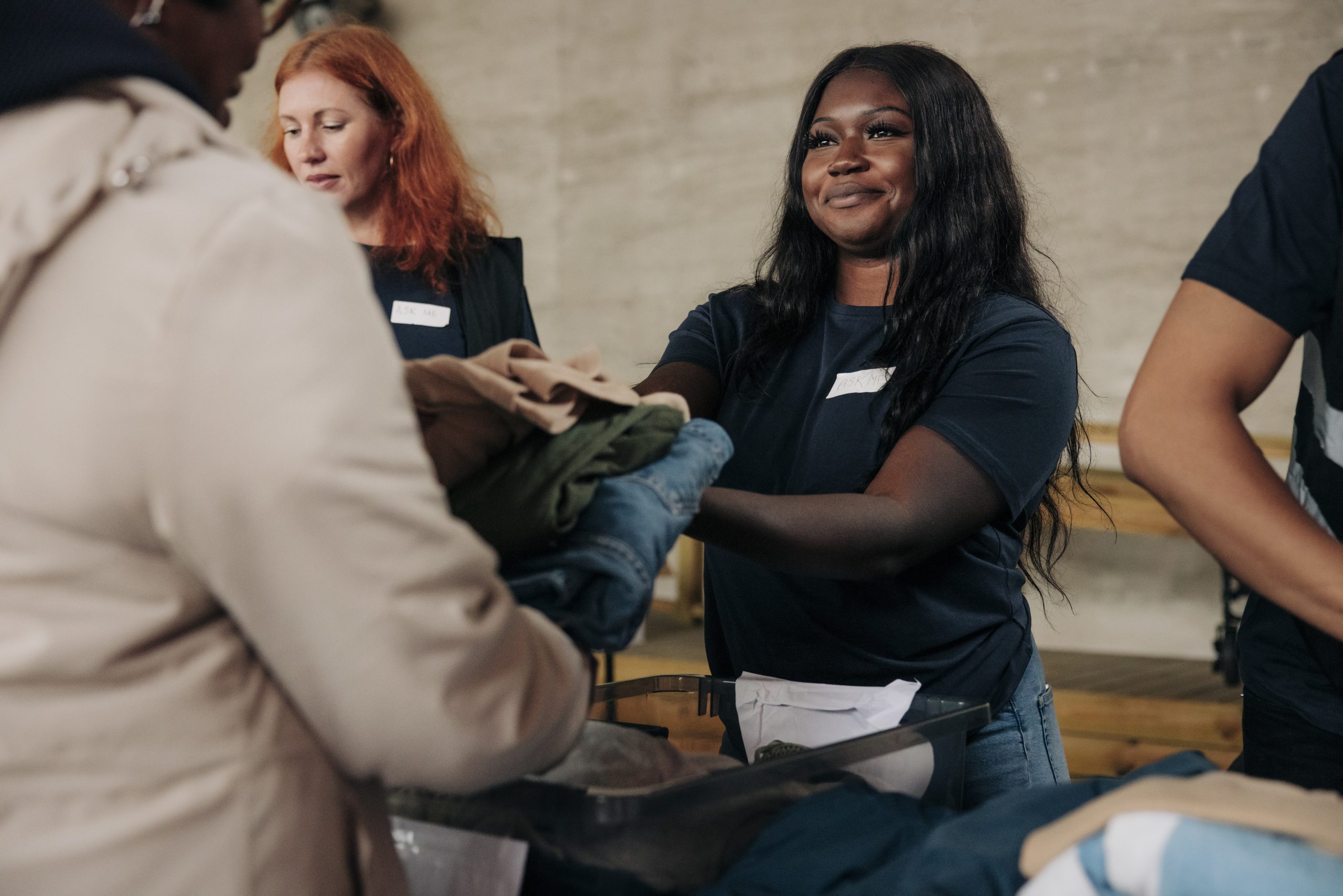
Service Project
Number of Participants: 5-25
Event Duration: 2-6 hours
Service is one of the most commonly shared values across worldviews, so bringing together students to better the community can be an inspiring way to promote interfaith cooperation in your campus or community. As you’re deciding what type of service to do, explore what your local community needs and how your campus can work together to help meet those needs. And be sure to include time for collective reflection after the project.
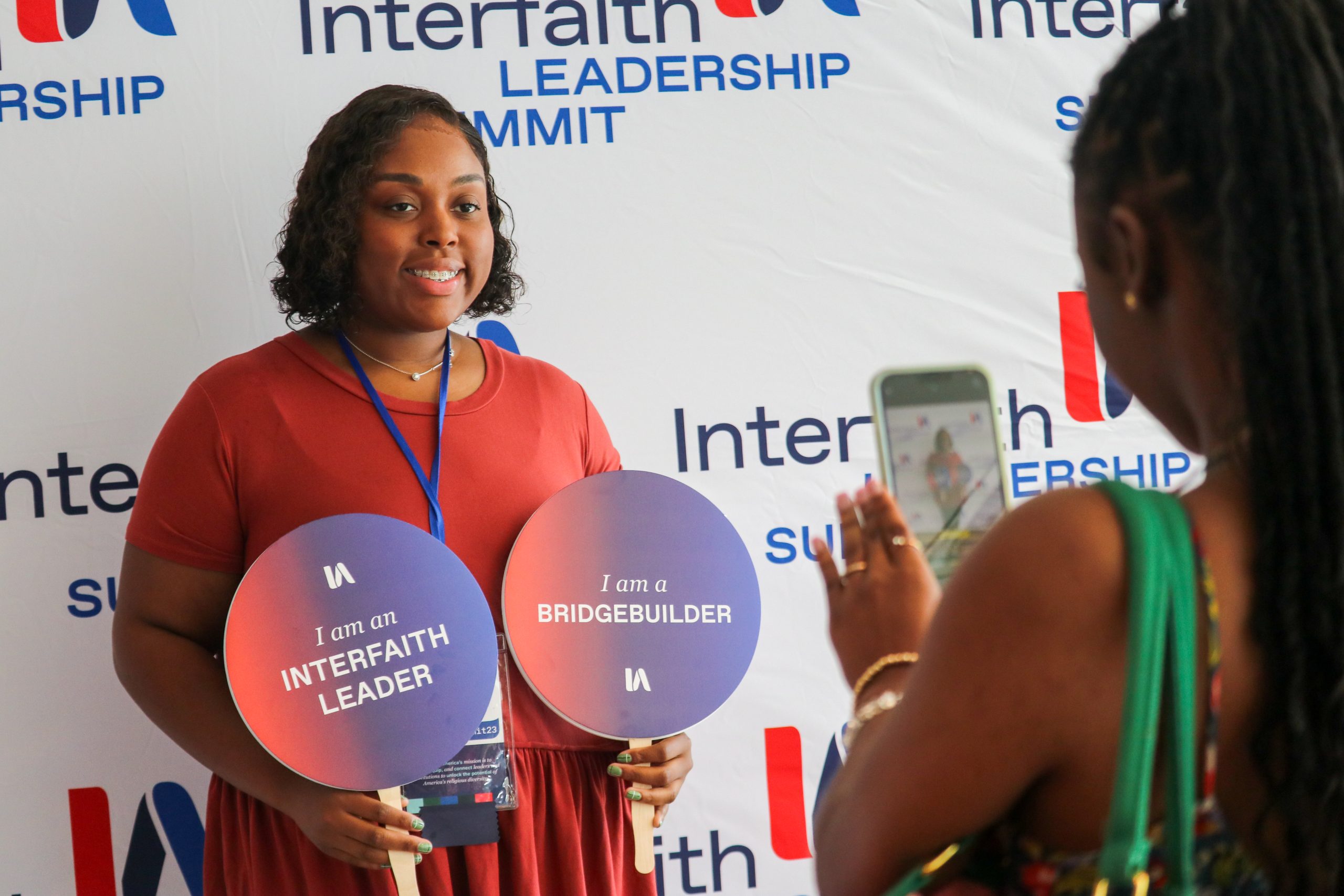
Photo Campaign
Number of Participants: Unlimited
Event Duration: In person: 2-3 hours; Online: 1-7 days
Many groups have done photo campaigns where they asked people to pose in front of a sign and answer a simple question like, “What do you value?” or “Why are we better together?” Some turn the pictures into a photo collage while others upload the photos to Facebook. It can even be an event entirely on social media where students post their own photos using a shared hashtag. Either way, it’s a great event to do as part of an Interfaith Week, during the start of your recruitment season, or to draw more students to an upcoming event.
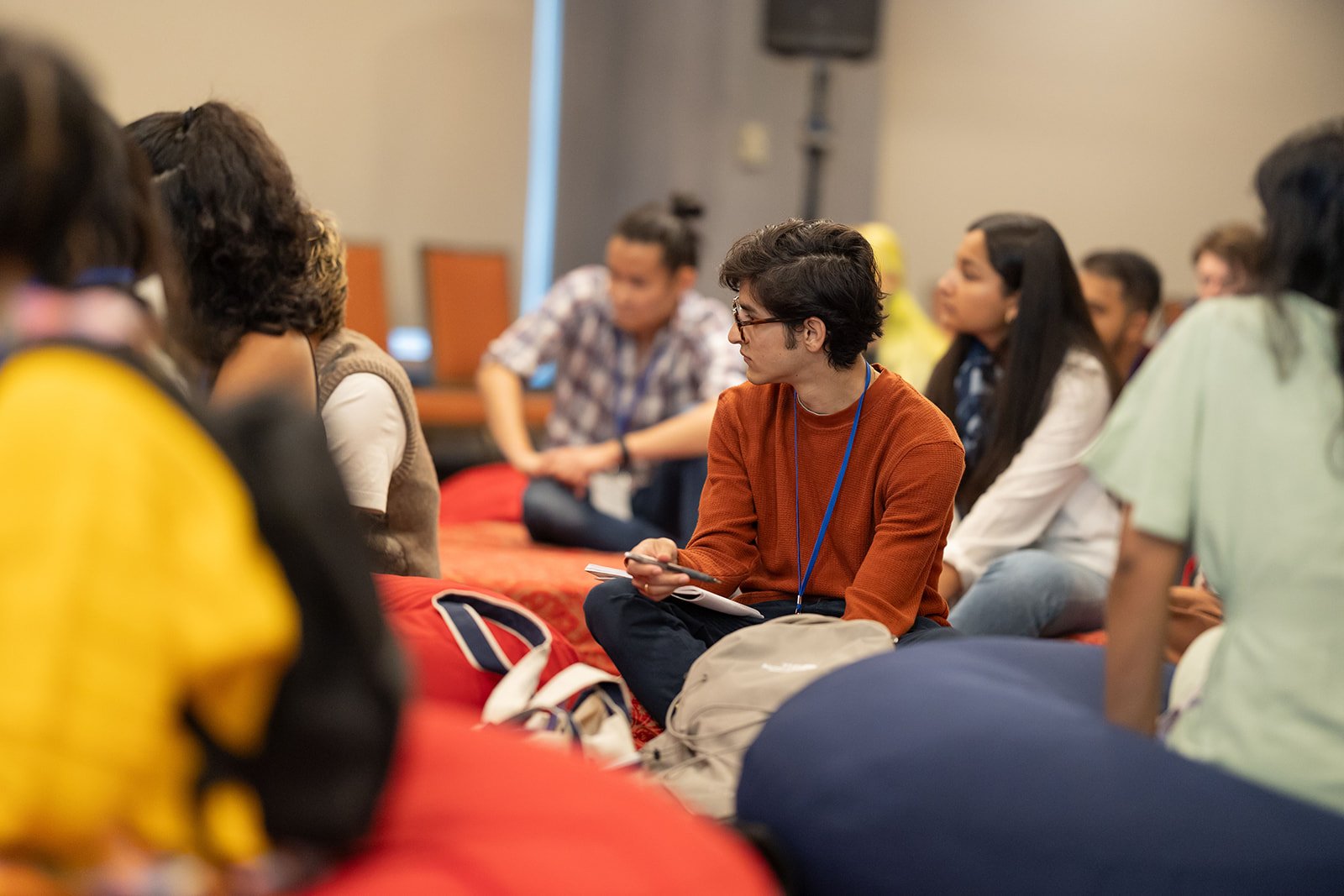
Film Screening
Number of Participants: 20+
Event duration: 3 hours
Step 1: find a movie that explores ideas around religion or identity in a nuanced, thorough, and compelling way. Step 2: acquire the rights to show it. Step 3: advertise the event. Step 4: hold the movie screening! Step 5: have a conversation right after about what participants learned, how their religious and secular values inspire them to address the issues in the film, and what ways they can act together to make an impact on this issue. Make sure you advertise well in advance, have other groups co-sponsor, and if possible, have the screenings be part of a larger event series.
Do you have an awesome event you’ve planned that you’d like to share with us? Email us at [email protected]. We’d love to hear about it!